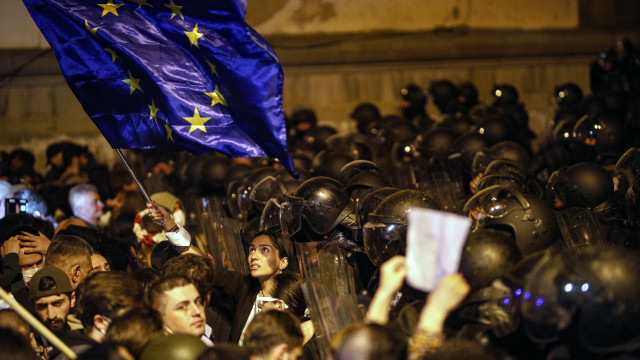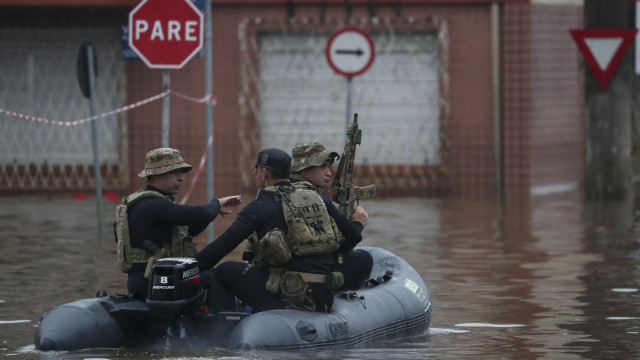Thousands of Georgians gathered at a rally in the capital Tbilisi demanding the government to repeal the controversial "foreign influence" law.
The country has been gripped by mass anti-government protests since mid-April, when the ruling Georgian Dream party again unveiled plans to pass a law that resembles Russian legislation used to silence dissent.
A year earlier, the party was forced to abandon a similar measure after a massive wave of street protests in which police used tear gas and water cannons against demonstrators.
Waving the flags of Georgia and the European Union, some 10,000 protesters gathered in Tbilisi's central Republic Square this evening, vowing to organise a "European march" down the capital's main street towards parliament, AFP reported.
The rally was spearheaded by around 100 Georgian human rights groups and opposition parties, which have so far stayed out of the daily youth-dominated protests.
"The authorities, who reintroduced the Russian bill, are going beyond the constitutional framework and changing the orientation of the country, betraying the unwavering will of the people," the organisers said in a statement.
Georgia's bid for EU and NATO membership is enshrined in its constitution. According to polls, more than 80% of the population supports the country's European integration.
"Georgian Dream insists that it is firmly pro-European and that the proposed law is only intended to "increase transparency" of foreign funding of NGOs. Critics, however, accuse the party of steering the former Soviet republic towards closer ties with Russia.
"This law, and this government, are incompatible with Georgia's historic choice to be a member of the EU," Nika Gvaramia, leader of the opposition Akhali party, said at the protest.
European Council President Charles Michel said the bill was "not in line" with Georgia's EU membership bid.
In December, the EU granted Georgia official candidate status, but noted that Tbilisi would have to reform its judicial and electoral systems, reduce political polarisation, improve press freedom and curb the power of oligarchs before it could begin formal membership talks. /BGNES







